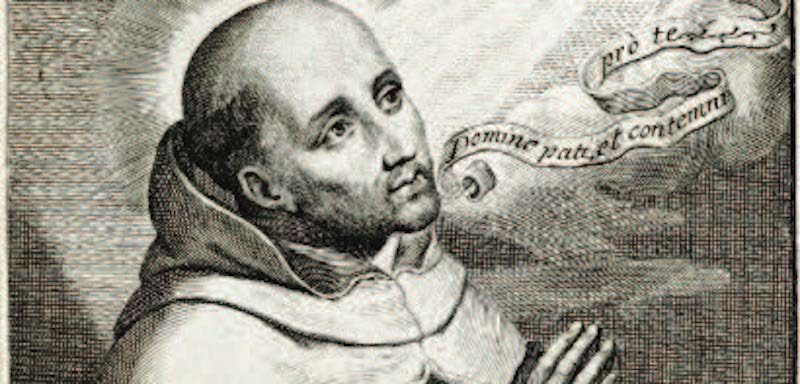John of the Cross, Carmelite saint, mystic, poet and doctor of the Church, whose feast is celebrated on Dec. 14, is renowned for his description of the spiritual journey toward union with God. His works, frequently cited by theologians and spiritual writers, can also be found on the shelves in New Age bookstores, which speaks to the broad appeal of his teachings.
Among his most notable works are “The Ascent of Mount Carmel.” “The Dark Night,” “The Spiritual Canticle” and “The Living Flame of Love.” However, among his lesser-known poems is one entitled simply, “Romances.”
The brevity of the title belies the depth and breadth of all it contains, for through poetic verse, the saint imagines a dialogue between God the Father and God the Son about their love for humanity from before the creation of the world through the Incarnation and the birth of God’s own Son.
As the conversation progresses, John of the Cross gives voice to the Son, who tells the Father, “I will go and seek my bride, take upon myself her weariness and labors… and I will die for her, lifting her out of that deep I will restore her to you.”
The poem describes how through the Incarnation, the Son of God who only had a Father now has a mother, and the bridegroom of souls now has a bride.
During this holy season of Advent, John’s poem is especially poignant as it acknowledges that “In perfect love, the law holds; that the lover becomes like the one he loves.”
As daughter of the Father, mother of the Son, and spouse of the Holy Spirit, no person is more Godlike than the humble virgin of Nazareth. Chosen for the role she was to play in salvation history, Mary was sinless from the moment of her conception, which immediately sets her apart.
Although the dogma of Mary’s Immaculate Conception (celebrated on Dec. 8) was not declared a doctrine of faith until 1854, (centuries after John of the Cross lived) the saint seemed to intuit what the 13th century Franciscan theologian Blessed John Duns Scotus argued:
Mary most holy is a daughter of Adam like all mankind, yet she did not contract original sin… It is, in fact, a more perfect redemption than liberative redemption, because it is more perfect to preserve a person from a fall than to lift him up after falling. It is a more excellent benefit to preserve someone from evil, rather than permit him to sin and need to be freed from it.
To this passage, we could add that Mary’s holiness needs to be seen not just as the absence of sin, but as the continuous flow of divine life within her soul. Akin to the burning bush, her heart was set aflame with the fire of God’s love, forever burning but never consumed, the perfect exemplar of John’s “Living Flame of Love.”
She who dwelt beyond Satan’s reach was sent as dew upon the Earth that ushered in a new dawn. As heaven’s purest fleece, she lent her womb to become the loom where the divine shuttle wove flesh and blood, bone and sinew to create the seamless garment that would clothe her son with a nature that was human and divine.
In keeping with this divine activity, John of the Cross wrote, “When it was time for the birth of the Son of God / he went forth like a bridegroom from the bridal chamber / embracing his bride / holding her in his arms, whom the gracious Mother laid in a manger.”
According to John, God our Father looked upon the human face of the Word made flesh and exclaimed:
Now you see, Son, that your bride was made in your image
And “the Mother gazed in sheer wonder on such an exchange:
In God, man’s weeping / And in man gladness.
To the one and the other / Things usually so strange.”
In keeping with the magnitude of the mysteries that surround us, Advent calls us to contemplate the wondrous gift we have been given in the person of Jesus Christ, who makes his dwelling place in our soul. Just as the Word of God grew in the womb of Mary, so the indwelling God that was planted in our soul at baptism can grow and mature – but not without our fiat.
As we reflect upon these profound mysteries, may Advent be a time of grace and wonder, knowing that God has visited his people, not as some distant or mythical deity, but as one of us so that we can become one with God.

